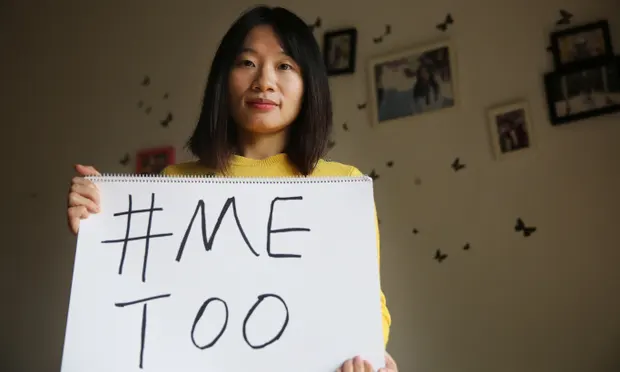Journalist held without trial in China said to need urgent medical attention
Comments Off on Journalist held without trial in China said to need urgent medical attention
By Helen Davidson in Taipei
Originally published by The Guardian on Feb. 16, 2023
Advocates of Huang Xueqin accuse authorities of ‘trying to exert mental pressure and physical torture’

Advocates for a Chinese journalist and activist who has been held in detention without trial for almost 18 months have said she needs urgent medical attention.
Huang Xueqin and Wang Jianbing, a labour rights activist, were detained in September 2021 and formally arrested a month later. They have been accused of inciting subversion of state power, and held in Guangzhou without access to family or lawyers.
Advocates and human rights groups have said the pair should never have been arrested. This week they said information had been brought to them that raised concerns about Huang’s health in particular. They said they were told she has lost a lot of weight, stopped menstruating, and is suffering from untreated long-term conditions and deficiencies.
“It is of great concern that these conditions, if not treated promptly and appropriately, have the potential to gradually cause permanent damage to the body,” they said.
The advocates also accused authorities of “trying to exert mental pressure and physical torture” of Huang, through repeatedly waking her at night for interrogation and depriving her of sleep.
“These circumstances are only the tip of the iceberg of what we can learn about Huang Xueqin’s detention situation,” the advocates said. “Due to the inability to learn more about Xueqin’s current appointment of official lawyers, it is difficult for us to obtain information on her physical and mental health and the progress of the case.”
The Guardian contacted the Guangzhou No 2 detention centre, but an employee said he was not aware of the case and declined to comment.
Huang is an independent journalist and was a prominent voice of the #MeToo movement in China. She and Wang were detained at Wang’s house shortly before Huang was scheduled to leave China for the UK to begin a master’s at the University of Sussex. Dozens of their friends and contacts were questioned by public security officials in subsequent weeks, in a manner the US-based Chinese Human Rights Defenders organisation described as harassment and interrogation.
“Those interrogated shared afterward that authorities downloaded the contents of their smartphones for investigation and pressured them to sign fabricated testimonies asserting that Huang and Wang had organised gatherings at Wang’s apartment to discuss politically sensitive topics,” the organisation said.
William Nee, a researcher at the organisation, said the latest news of Huang’s health was “alarming”. “She should never have been detained in the first place, but this now adds extra urgency for the Chinese government to release her,” Nee said.
He said Huang was a “victim of incommunicado detention, which is a gross human rights violation”.
Under an increasingly authoritarian environment in Xi Jinping-ruled China, human rights groups, activists, lawyers and protesters are increasingly targeted by authorities, with growing concerns about the number of detentions, arrests, interrogations and convictions.
Li Maizi, a veteran feminist activist in Beijing, said feminists were particularly targeted. “Once you are a feminist, you are a feminist activist. You are going to be stigmatised as a traitor, a Hong Kong movement supporter, [as] are trying to divide our country,” she said.
Li said Guangzhou used to be a “free space” for activism but had become “very hostile” in the last decade, prompting many to leave.
“I think Huang Xueqin’s case is under this background,” Li said.
Additional reporting by Amy Hawkins
